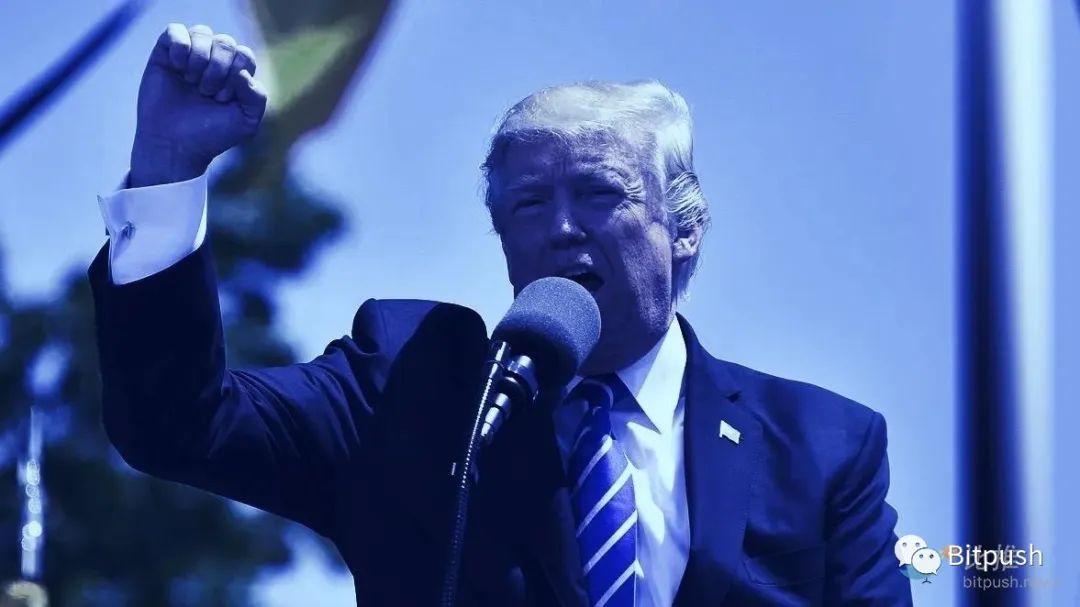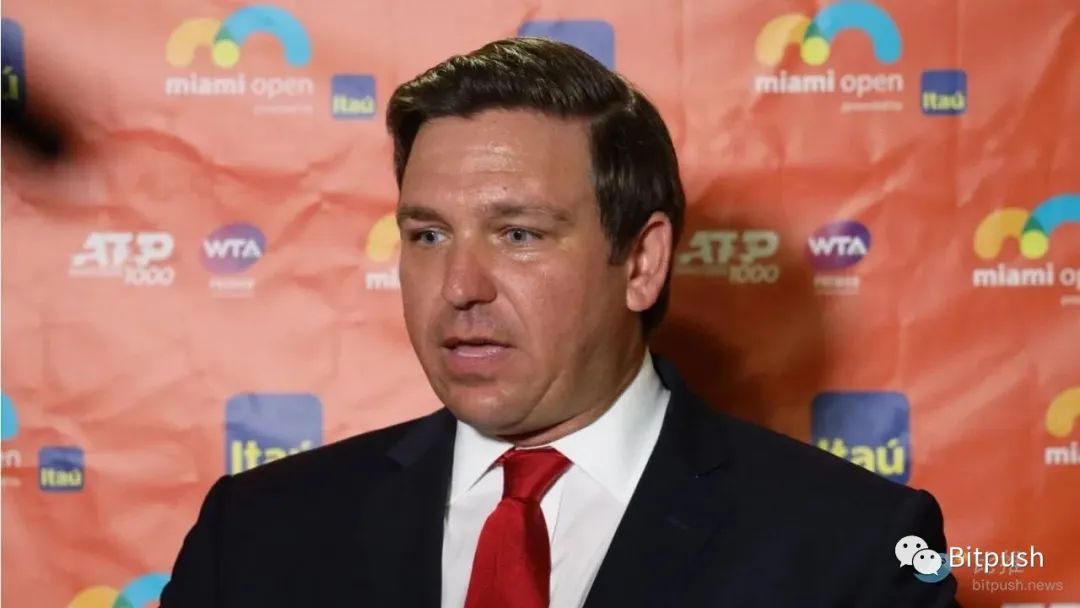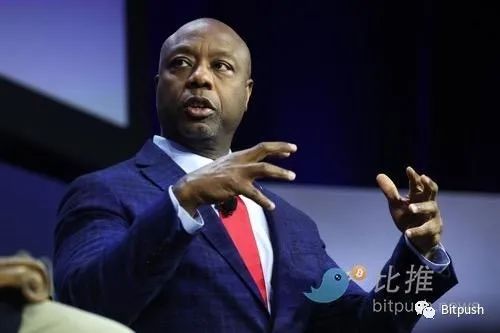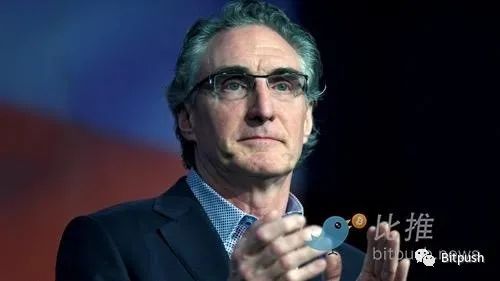The first debate of the Republican primary ended. Which candidates are friendly to cryptocurrencies?
Republican primary debate, which candidates support cryptocurrencies?The first debate among the eight Republican presidential candidates in the United States ended on Wednesday night (August 23rd), marking the first major event before the upcoming general election next year. So, what are the candidates’ positions on cryptocurrencies?
Donald Trump

Former U.S. President and leading Republican candidate Donald Trump was absent from the debate.
As LianGuai previously reported, according to financial disclosure documents submitted to the U.S. Office of Government Ethics on August 15th, Trump’s Ethereum wallet holds over $2.8 million in cryptocurrencies. The disclosed information also shows that Trump earned nearly $4.9 million in licensing fees from a series of NFTs, which were launched by his campaign team.
- Is there really market manipulation by crypto market makers?
- Market Analysis A sharp drop is expected before the next rise, and a bear market is imminent.
- Can BTC hold the $26,000 support level? $1.9 billion BTC monthly options will tell you.
In 2019, Trump tweeted that he was “not a fan of Bitcoin and other cryptocurrencies” and that he supported the U.S. dollar.
However, Trump’s holdings of cryptocurrencies almost classify him as a crypto “whale.” It is an ironic twist for someone who has described cryptocurrencies as a “scam” and a “very dangerous thing.”
Ron DeSantis, Governor of Florida

Florida Governor Ron DeSantis has expressed his support for Bitcoin since the first day of his candidacy. During the opening ceremony of a campaign event where he appeared with Elon Musk, DeSantis said that if President Joe Biden is re-elected, Bitcoin may be “eliminated.”
DeSantis said, “You have every right to use Bitcoin, and the only reason those people in Washington don’t like it is because they can’t control it.”
Ron DeSantis has also criticized central bank digital currencies (CBDCs). He has referred to this technology as a “massive transfer of power from individual consumers to central institutions” and has taken action to prevent the introduction of a digital dollar in Florida.
Vivek Ramaswamy, Entrepreneur

38-year-old biotechnology entrepreneur Vivek Ramaswamy is also a supporter of cryptocurrencies.
Vivek Ramaswamy challenged Florida Governor Ron DeSantis in the Republican primary to vie for the second position. He is one of the wealthiest individuals under the age of 40 in the United States. According to Forbes, Vivek briefly became a billionaire, but the stock market downturn reduced his fortune to slightly over $950 million.
He once made a statement at the Miami Bitcoin Conference, saying, “Thomas Jefferson, if he were still alive, would also mine Bitcoin. I have no doubt about it. It is a reflection of the American spirit and our nature as human beings.”
Ramaswamy also stated that Bitcoin is not a security, criticized the Federal Reserve for trying to play “the god of finance,” criticized CBDC, and criticized the Biden administration’s proposal to impose a 30% consumption tax on cryptocurrency mining.
He said that one of his main goals in running for office is to reform the US central bank, and he hopes that donors to his campaign will donate Bitcoin to get him onto the debate stage and make 2024 a “referendum on sound money in America.”
In a May interview with CoinDesk, Ramaswamy said he is the only candidate with sufficient knowledge to speak wisely about Bitcoin. He also accused DeSantis of taking positions in support of Bitcoin and against CBDC in many aspects.
Earlier this week, Ramaswamy received Elon Musk’s endorsement, calling him “a very promising candidate.”
South Carolina Senator Tim Scott

South Carolina Senator Tim Scott is a member of the Senate’s Financial Innovation Core Group, which discusses issues such as digital assets, stablecoins, and CBDC, and he supports cryptocurrency regulation.
Tim Scott is also a co-sponsor of the “Access to Independent Investors Act,” which ultimately failed last year but attempted to define digital assets as investments and modify existing rules regarding qualified investors.
At a Senate Banking Committee hearing in February specifically discussing digital assets, he criticized SEC Chairman Gary Gensler’s decision to be absent and questioned whether the SEC was “asleep” because the agency failed to take timely action against FTX, resulting in the exchange’s collapse in November of last year.
He said, “The American people deserve to know why no action was taken before the collapse of FTX and how millions of hard-earned dollars in the United States went up in smoke.”
North Dakota Governor Doug Burgum

North Dakota Governor Doug Burgum is not a high-profile supporter of Bitcoin in his campaign, but he has repeatedly sent friendly signals to the crypto industry over the past year, noting that the state has become a cryptocurrency mining center in his comments on the construction of a data center in North Dakota last year.
He said, “This major investment in North Dakota will further solidify our state’s growing reputation as a data center and cryptocurrency mining center, and we have the capability to support data centers and other energy-intensive industries.”
Candidates with unclear positions
Several candidates have not made public comments on cryptocurrency or Bitcoin, including former New Jersey Governor Chris Christie, former United Nations Ambassador Nikki Haley, former Arkansas Governor Asa Hutchinson, and former Vice President Mike Pence.
Miami Mayor Unable to Participate in Debate
According to ABC Action News, Miami Vice Mayor Francis Suarez, who has always been supportive of cryptocurrencies, admitted yesterday that he was not eligible to participate in the debate, as he mistakenly claimed a week ago that he was qualified to do so.
In an interview with The Block, Suarez stated that if elected president, he might consider paying his salary in Bitcoin, and he has already done so during his tenure as Miami Mayor. Additionally, the candidate accepts Bitcoin transactions.
He said, “I believe it is crucial for the president to encourage innovation, and I do support alternative assets such as cryptocurrencies. I believe they are highly beneficial for countries like the United States.”
We will continue to update Blocking; if you have any questions or suggestions, please contact us!
Was this article helpful?
93 out of 132 found this helpful
Related articles
- Due to macroeconomic factors, the inflow of risk capital into cryptocurrencies further declined.
- Why did the cryptocurrency market decline this week?
- Returning to ‘Common Sense’ Rationally Examining the ‘Truth’ of Crypto
- LianGuai Daily | Former product leader of OpenSea sentenced to 3 months imprisonment for insider trading; Binance Labs invests in Pendle Finance.
- Detailed explanation of the evolution of the MEV market from zero-sum game to separation of powers, the dark forest is being illuminated.
- Looking back at the decentralized storage track that has been ‘neglected’ by the market from EthStorage
- How to Tax Stablecoins?





